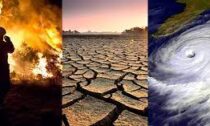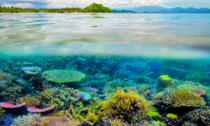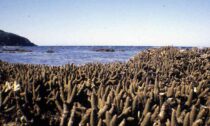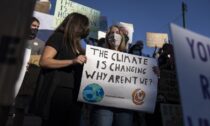
The ocean is now warmer than it’s ever been in recent history, according to a new study. And this isn’t the first time such a record has been set. For the past six years, ocean temperatures have exceeded each previous year in a trend one scientist calls “inexorable.”
Human-induced climate change is to blame, says John Abraham, co-author of the new study published Jan. 11 in Advances in Atmospheric Sciences.
“We should be very concerned,” Abraham, a professor of thermal sciences at the University of St. Thomas in Minnesota, U.S, told Mongabay in a video interview. “But frankly, we should have been concerned years ago.”
The research team used a network of high-tech autonomous ocean buoys to measure global ocean temperatures, which they compared to data from the 195...
Read More











Social Profiles